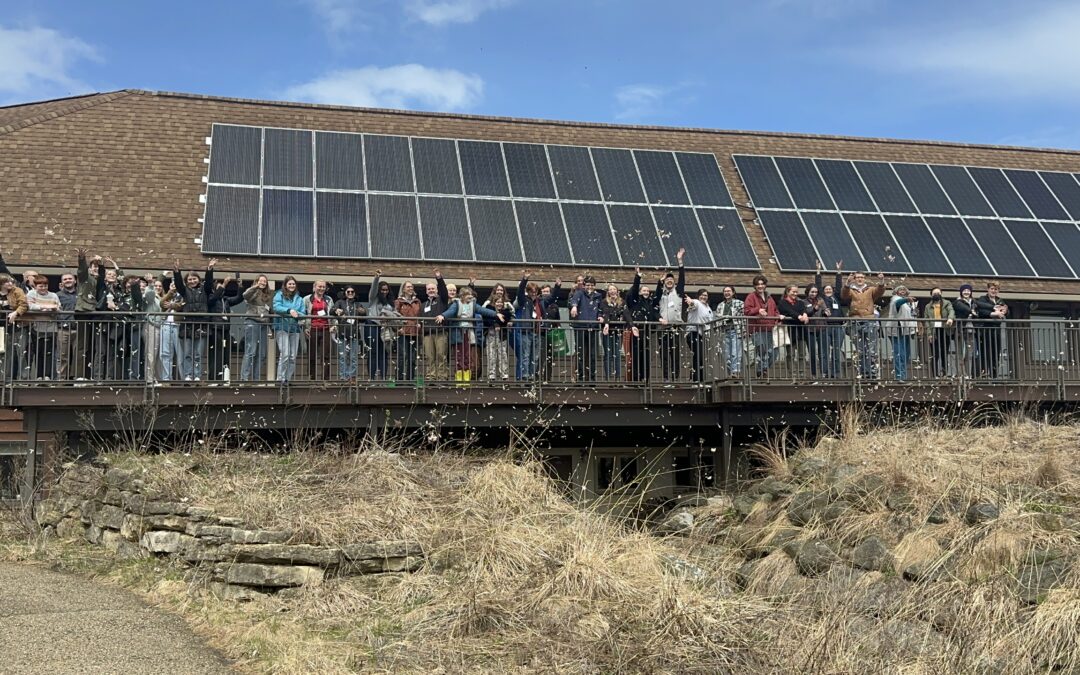On Saturday, April 22, The University of Wisconsin Madison Arboretum celebrated Earth Day by holding an event dedicated to celebrating their sustainability efforts, including a solar dedication ceremony. They aim to conserve and restore the Arboretum lands, advance restoration ecology, and foster the land ethic.
SunPeak installed this 25.16 kW solar system on the Arboretum Visitor Center, and consists of 66 PV modules. The system is estimated to produce 32,000kWh of annual energy and will cover around 8% of the Arboretum’s electricity needs.
The University of Wisconsin Madison Arboretum includes the world’s oldest and most varied collection of restored ecological communities. With this global status, it is expected that the visibility of this solar array will be far-reaching. “Our mission to foster the land ethic involves promoting sustainable relationships between people and the land,” said Karen Oberhauser, Director of the Arboretum. “A key driver of people/land interactions involves energy production, extraction, and consumption. Thus, we are dedicated to decreasing our institutional carbon footprint, serving as an example of sustainable energy production and use.”
This project received funding from Focus on Energy and a generous donation from Friends of the Arboretum, and the Green Fund, a program of the UW-Madison Office of Sustainability that supports student ideas to improve campus stability. In addition to this financial support, The University of Wisconsin Madison Arboretum also received a panel grant from Solar for Good, a RENEW Wisconsin program in partnership with the Couillard Solar Foundation. Solar for Good granted the Arboretum a total of 68 solar panels.
This project was brought to fruition largely due to the assistance of UW Madison student organizations, specifically Helios, whose members were active participants in all project stages, including drafting grant proposals, calculating the system’s impact, and engaging with their campus and community audiences. In addition to the UW Madison Arboretum, Helios and the Green Fund were also instrumental in getting a solar system installed on the University’s Gordon Dining & Event Center.
“We appreciate the generosity of donors and funders, the dedication of staff, the collaboration of students, and the assistance of campus and community partners as we strive to create a greener building for work and public learning,” said Susan Day, Communications Coordinator with the Arboretum.
“As an environmental research center, the Arboretum is dedicated to decreasing its institutional carbon footprint, serving as an example of sustainable energy projection and use, and informing the public about these efforts,” continued Day.
As a leader in the global ecological realm, the Arboretum’s solar installation will be visible to thousands of people over its 30-year lifespan. With this level of visibility, the UW Madison Arboretum will serve as a model to other organizations to take the first step in their renewable energy journey.

